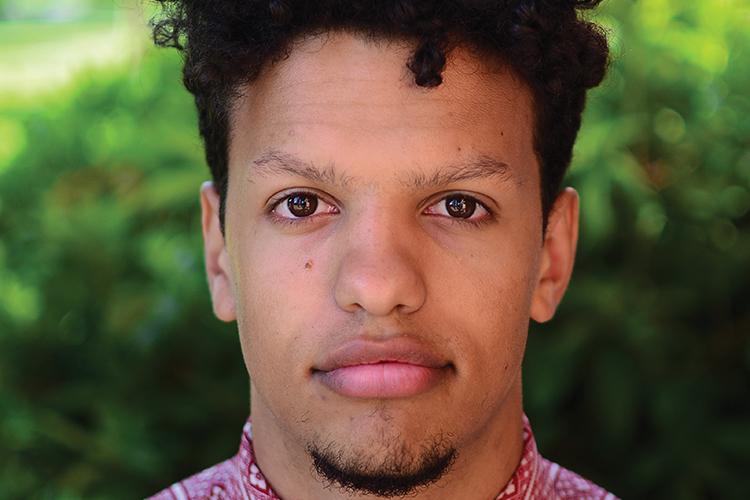
As I approached the front doors of Grant, I started to slow down. I hesitated before I walked in, my nerves nearly getting the best of me. At this time, I was a junior and had walked through this corridor hundreds of times before. But that day, it felt different.
When I finally mustered the strength to enter the school, I saw a banner hanging above me in center hall that read, “Race Forward.” I was anxious about how the event would go, but when I saw that banner, I was filled with pride that I was going to a school where something like this was happening.
During my time at Grant, there has been a vast transformation in the school. Events that spurred conversation have contributed to creating a student body that is far more socially and politically engaged than ever before. I couldn’t have imagined this would happen in earlier years.
During my freshman and sophomore years, I remember having some conversations in my classes about social issues. In my freshman English class, we watched “Miss Representation” and discussed gender inequality. In Living in the U.S. my sophomore year, we watched a documentary on housing discrimination and debated whether or not reparations should be paid to descendents of slaves in the United States.
At the time, engaging in dialogue on these topics truly felt like a revolutionary act. I had not talked with my peers in any meaningful way about these topics before, and certainly not in a classroom setting.
But these discussions rarely expanded beyond the classroom. Before class conversations, some teachers told students, “Whatever happens in this class, stays in this class,” sending the message that students shouldn’t continue dialogue on these issues on their own. Most often, conversations never reached into how issues like gender or race were playing out in the Grant community.
However, there were some people doing good work to spark important conversations. My junior year, Speak Out Week became more focused on spreading awareness around LGBTQ+ issues. The assembly highlighted the experiences of students at the school and brought me to tears. I left the assembly more mindful of other identities and their realities, and I think many others in the school did too.
That year, I had my own hand in trying to create change in the school. As the Vice President of Black Student Union, I helped organize and participated in a black student panel called a “fishbowl.” Teachers and administrators sat silently in a circle around us as we discussed our racial experiences relevant to Grant. A common sentiment among us was that we didn’t feel represented in our classes and curricula. The staff listened and used what they learned from the fishbowl as a jumping off point for their later professional developments.
Later that year, I experienced a racist incident on the soccer team, and I worked with members of the administration to organize a restorative justice session with my teammates. But we all recognized that the issue of race had to be confronted in a bigger way because racist incidents were occurring every day.
This led to the creation of the Student Equity Team. We were tasked with starting a schoolwide event meant to normalize conversations about race, which is now known as “Race Forward.”
The impact of Race Forward is sometimes hard to detect, but overall, students say that there has been a vast increase in awareness and conversations surrounding racial issues. Just the other day I walked into the College and Career Center and stumbled upon a discussion about gentrification and how it was impacting the school.
The influence of other events – like the fishbowl – have had a much more visible impact on the school. For my senior year, Grant implemented Latin American Literature, Feminism and Gender Studies, Ethnic Studies and expanded Living in the U.S., all classes that focus on identities and narratives traditionally left out of core curricula. These classes have helped students think critically about systems of oppression.
With a nationwide awakening due to a shifting political climate, Grant High School has truly become an environment defined by meaningful dialogue and action around social and political issues.
This was clear about a month ago when a teacher wrote an essay denying rape culture’s existence. I saw a larger response from the staff and student body than I’ve ever seen when something controversial happens.
The Grant community needs to continue to pursue change by uplifting and empowering student voices.
In order for this to be successful, the whole Grant community must step up. The student body must continue to prioritize important conversations and advocate for what they believe in. Students must realize the power that they wield to create real change at Grant.
The administration cannot rely on their past successes to carry their reputation. They must continue to evaluate their practices, and it’s imperative that they emphasize student voice as an engine for their work.
The staff needs to be supportive, receptive and willing to adjust curricula and lesson plans to better serve all students. They must be prepared to learn just as much from students as they plan to teach them.
As we leave this Grant building behind and move to Marshall, we can’t leave behind the lessons we’ve learned and the work we’ve done. ◆




